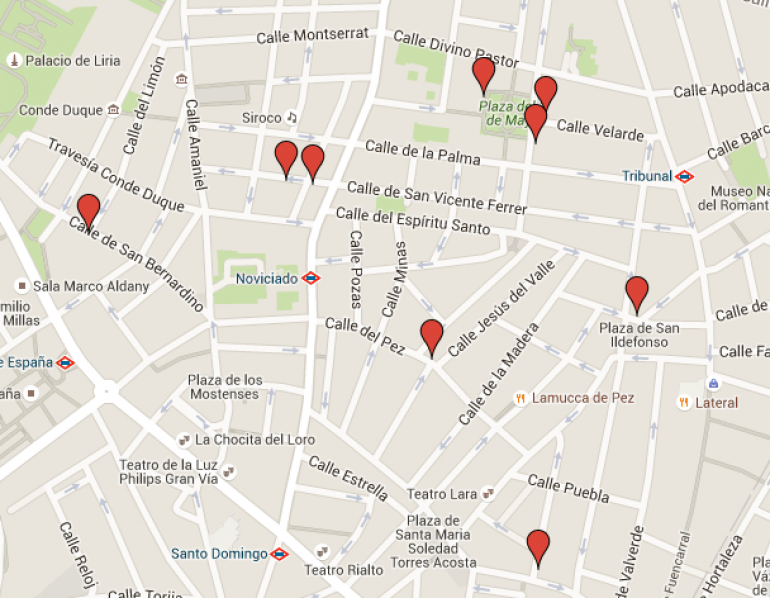Choosing Pig Sex
 Just a few years ago, the British philosopher Kathleen Stock tweeted, “I reject regressive gender stereotypes for ladies, which is partly why I won’t undergo an ideology that insists womanhood is a feeling, then cashes that out in sexist terms straight from 50s.” In a new ebook, “Material Girls: Why Reality Matters for Feminism,” Stock rows back from this sentiment: “It seems unusual to blame trans ladies for his or her attraction to regressive feminine-associated stereotypes when apparently so many non-trans women are attracted to them too.” Yet the reprieve is partial. Stereotypes and anecdotes won’t work. They haven’t needed to cope with the onset of their periods in the course of a crowded subway, the humiliation of discovering that their male work partners’ checks had been far bigger than theirs, or the concern of being too weak to ward off rapists.” But most contemporary trans-exclusionary feminists insist that trans women aren’t girls simply because being a “woman” is a matter of biological intercourse. Although formally on the side of butch lesbians, who are, they are saying, existentially threatened by “gender ideology,” trans-exclusionary feminists support legal guidelines that make such women’s access to public areas precarious: since the beginning of the “bathroom wars,” butch lesbians in the U.K.
Just a few years ago, the British philosopher Kathleen Stock tweeted, “I reject regressive gender stereotypes for ladies, which is partly why I won’t undergo an ideology that insists womanhood is a feeling, then cashes that out in sexist terms straight from 50s.” In a new ebook, “Material Girls: Why Reality Matters for Feminism,” Stock rows back from this sentiment: “It seems unusual to blame trans ladies for his or her attraction to regressive feminine-associated stereotypes when apparently so many non-trans women are attracted to them too.” Yet the reprieve is partial. Stereotypes and anecdotes won’t work. They haven’t needed to cope with the onset of their periods in the course of a crowded subway, the humiliation of discovering that their male work partners’ checks had been far bigger than theirs, or the concern of being too weak to ward off rapists.” But most contemporary trans-exclusionary feminists insist that trans women aren’t girls simply because being a “woman” is a matter of biological intercourse. Although formally on the side of butch lesbians, who are, they are saying, existentially threatened by “gender ideology,” trans-exclusionary feminists support legal guidelines that make such women’s access to public areas precarious: since the beginning of the “bathroom wars,” butch lesbians in the U.K.
 At the same time, there had been rising tensions between feminists (like Ti-Grace Atkinson and Roxanne Dunbar-Ortiz) who embraced separatism and, sometimes, political lesbianism as the one acceptable responses to male supremacy, and feminists (just like the “pro-woman” members of the group Redstockings, based by Shulamith Firestone and Ellen Willis, in 1969) who rejected such “personal solutionism” for its rebuke of heterosexual need and its tendency to alienate “non-movement” girls. Still, there are feminists who’re vital of trans women’s claims to womanhood because of an ideological commitment to what they consider radical-feminist principles. And when Morgan referred to as for a vote to eject Elliott, more than two-thirds of the attendees voted no. When Catharine MacKinnon, among probably the most influential theorists of radical feminism, started working as a sex-discrimination lawyer, she selected a trans woman incarcerated in a male prison as one in all her first purchasers. A week before the convention, antiporn feminists began calling Barnard administrators to complain, and administrators confiscated copies of the “Diary of a Conference on Sexuality”-a compilation of essays, reflections, and erotic photos to be given out to participants. Evidently the majority of Gurung ladies are contented and don’t see any want to come out of their homes to hunt any rights.
At the same time, there had been rising tensions between feminists (like Ti-Grace Atkinson and Roxanne Dunbar-Ortiz) who embraced separatism and, sometimes, political lesbianism as the one acceptable responses to male supremacy, and feminists (just like the “pro-woman” members of the group Redstockings, based by Shulamith Firestone and Ellen Willis, in 1969) who rejected such “personal solutionism” for its rebuke of heterosexual need and its tendency to alienate “non-movement” girls. Still, there are feminists who’re vital of trans women’s claims to womanhood because of an ideological commitment to what they consider radical-feminist principles. And when Morgan referred to as for a vote to eject Elliott, more than two-thirds of the attendees voted no. When Catharine MacKinnon, among probably the most influential theorists of radical feminism, started working as a sex-discrimination lawyer, she selected a trans woman incarcerated in a male prison as one in all her first purchasers. A week before the convention, antiporn feminists began calling Barnard administrators to complain, and administrators confiscated copies of the “Diary of a Conference on Sexuality”-a compilation of essays, reflections, and erotic photos to be given out to participants. Evidently the majority of Gurung ladies are contented and don’t see any want to come out of their homes to hunt any rights.
Today’s trans-exclusionary feminists sometimes declare that they search to dismantle a gender system that oppresses girls and girls. Native-born workers of both gender are paid more per hour than (non-naturalized) foreign-born staff (Figure G). One of many few Black girls who attended, Gerlin Bean, has mentioned that she “couldn’t actually pick on the relevance” of the occasion “as it pertains to Black women.” (Bean would go on to co-found the influential Organisation of Women of African and Asian Descent.) Whether or not the divisiveness of the 2020 Oxford convention was in preserving with the spirit of 1970, it was definitely in protecting with the spirit of later episodes in the British motion, as its fault strains grew extra seen during the seventies. Today, essentially the most visible warfare inside Anglo-American feminism is over the place of trans ladies within the movement, and within the class of “women” extra broadly. Self-identified “revolutionary feminists” submitted a proposal to cancel the calls for established at previous conferences, insisting that it was “ridiculous for us to demand anything from a patriarchal state-from men-who’re the enemy.” Revolutionary feminism had been baptized the year earlier than, when Sheila Jeffreys, in a lecture titled “The Need for Revolutionary Feminism,” chided socialist feminists for failing to recognize that male violence, moderately than capitalism, was the root of women’s oppression.
At the Birmingham conference, the revolutionary feminists’ proposal was left off the plenary agenda, and, when it was finally learn aloud, chaos erupted: girls shouted, sang, and wrenched microphones from one another’s palms. What occurred at Birmingham prefigured what happened at Barnard College, in New York, four years later. In a 2019 piece on Andrea Dworkin, Moira Donegan wrote that “sex positivity turned as strident and incurious in its promotion of all elements of sexual tradition because the anti-porn feminists were in their condemnation of sexual practices under patriarchy.” Yet the inimitable Maggie Nelson, in her new e-book, “On Freedom: Four Songs of Care and Constraint,” sees a “straw man” in such dismissive depictions of sex positivity. In 2009, Germaine Greer wrote of “people who suppose they’re girls, have women’s names, and feminine clothes and lots of eyeshadow who appear . Still, if you have a child and an iPad this is free to make use of (it’s in beta, so there may be charges sooner or later) and could be attention-grabbing.